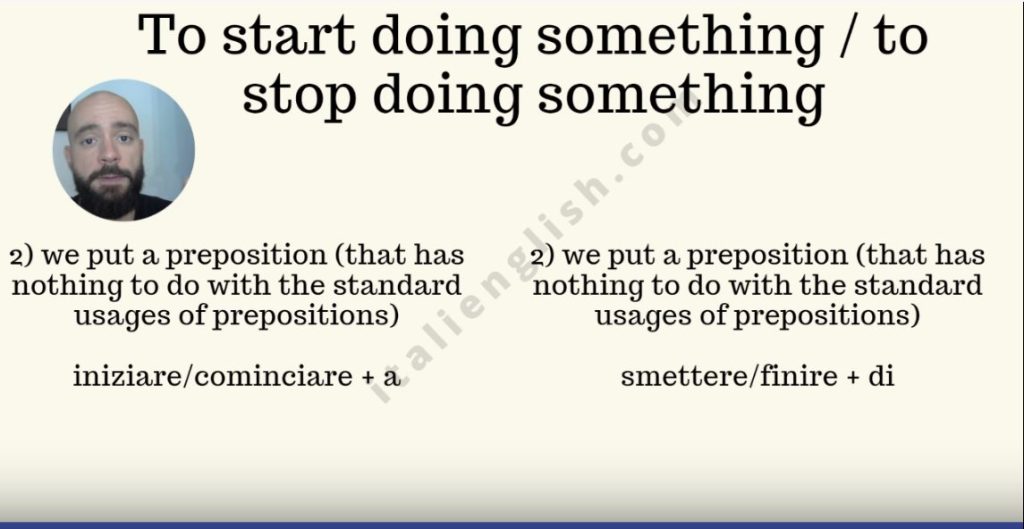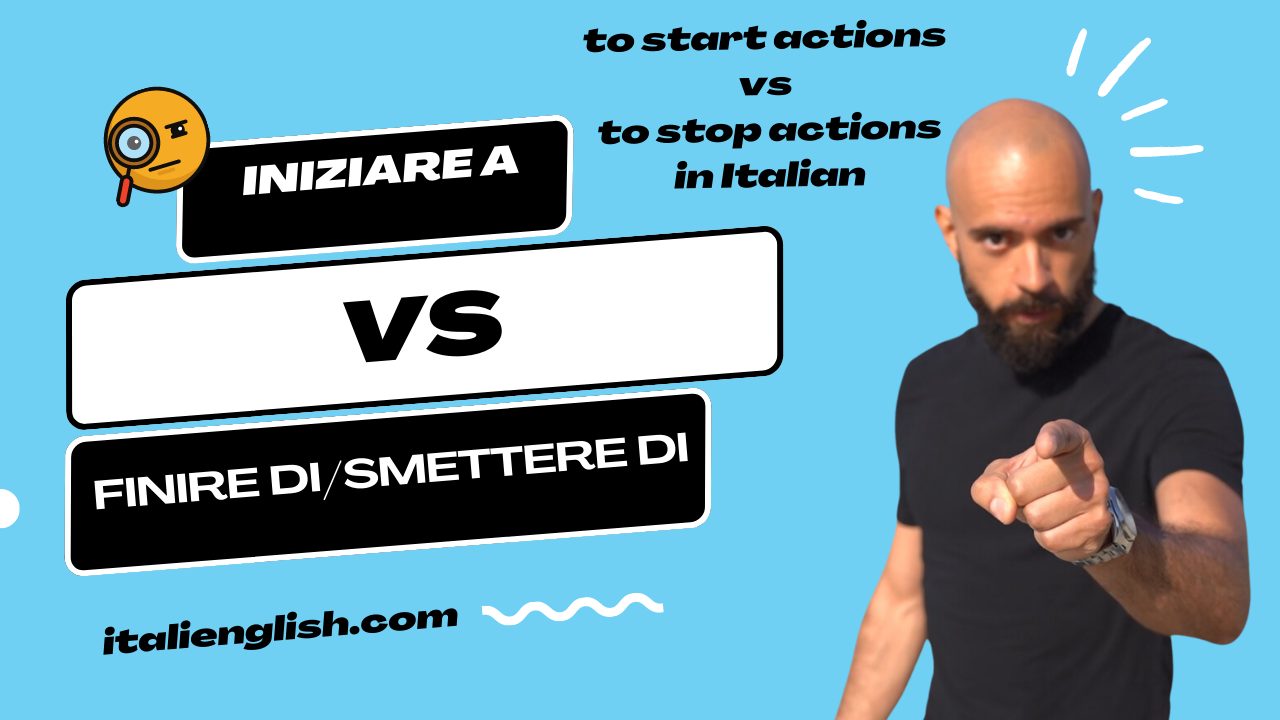Have you ever found yourself struggling with the nuances of Italian grammar? Do you want to speak confidently and naturally in everyday conversations? Well, you're in luck! In this comprehensive guide, we'll delve into the intricacies of the Italian verb structures for starting and stopping actions. From conjugation to prepositions and infinitives, we'll explore every aspect of these essential linguistic tools. By the end of this blog post, you'll not only understand the structure of these verbs but also gain the confidence to use them effectively in your conversations.
Unveiling the Magic of "Start" and "Stop"
Content
Content
Unveiling the Magic of "Start" and "Stop"
Greetings, language enthusiasts! Today, we embark on an exciting journey through the heart of Italian grammar, focusing on the dynamic verbs "to start" and "to stop." These two verbs play a crucial role in communication, allowing us to express our intentions and actions with precision. Whether you're discussing your daily routine or sharing your plans with friends, mastering these verb structures will greatly enhance your Italian language skills.
Why Starting and Stopping Matters
Think about the last time you engaged in a lively conversation. Chances are, you shared your activities, plans, or experiences. That's precisely why verbs like "start" and "stop" are so essential in conversation – they allow you to articulate your actions and intentions. Whether you're explaining your daily routine, discussing your hobbies, or describing your travel plans, knowing how to use these verbs effectively will give you the power to communicate your thoughts clearly and confidently.
The Intricacies of Conjugation
Conjugation is the beating heart of any verb, allowing it to harmonize with different subjects and tenses. When it comes to "start" and "stop" in Italian, conjugation plays a crucial role in forming accurate sentences. Let's take a closer look at the conjugations for these two verbs:
- To Start: Iniziare or Cominciare
- io inizio (I start)
- tu inizi (you start)
- lui/lei inizia (he/she starts)
- noi iniziamo (we start)
- voi iniziate (you all start)
- loro iniziano (they start)
- To Stop: Finire/Smettere
- io finisco (I stop)
- tu finisci (you stop)
- lui/lei finisce (he/she stops)
- noi finiamo (we stop)
- voi finite (you all stop)
- loro finiscono (they stop)
Do you like what you've read so far? Wanna grab a FREE 4-videos series? Subscribe to my newsletter!

I'll notify you of new articles and send exclusive content. Don't worry! No spam, no unwanted emails, and no sharing your data with third parties.
Now, let's dive into the intriguing world of prepositions and infinitives that embellish these verbs' structures. Italian has a unique approach to prepositions that might seem perplexing at first, especially when compared to English. When using "start" or "stop" in Italian, you'll need to attach a preposition before the infinitive of the target verb. The preposition you choose depends on the verb itself.
- To Start: Iniziare (with a)
- I start studying Italian. -> Inizio a studiare l'italiano.
- To Stop: Smettere (di)
- They stop watching TV. -> Loro smettono di guardare la TV.
Decoding the Differences
Understanding when to use "iniziare" and "cominciare" or "fermare" and "smettere" might initially feel like a linguistic labyrinth. However, there's a simple hack to distinguish between them:
- Iniziare vs. Cominciare: Both mean "to start," but you can remember "iniziare" as "initiate" and "cominciare" as "commence." They're interchangeable and used to express the beginning of an action.
- Fermare vs. Smettere: Here, it's about permanence. "Fermare" is used when you stop temporarily or pause something, while "smettere" is employed when you stop for good, quit, or cease entirely.

Unlocking Fluency with Examples
To solidify your grasp of these verb structures, let's explore some real-life examples:
- Expressing Intentions: I want to start learning French soon.
- Voglio iniziare a imparare il francese presto.
- Describing Actions: She stops working at 5 PM every day.
- Lei finisce di lavorare alle 17 ogni giorno.
- Conversing about Hobbies: We start playing soccer in the afternoon.
- Noi cominciamo a giocare a calcio nel pomeriggio.
- Talking about Changes: He quit his job and started a new career.
- Ha smesso il suo lavoro e ha iniziato una nuova carriera.
Conclusion: A Flourishing Fluency Awaits
Congratulations! You've embarked on an exhilarating journey through the captivating realms of Italian verb structures for starting and stopping actions. Armed with the knowledge of conjugation, prepositions, and infinitives, you're now equipped to navigate Italian conversations with grace and confidence. Remember, the key to mastering any language lies in practice and persistence. So, embrace the linguistic adventure and enjoy your expanding vocabulary and fluency!
Do you want to get access to my Italienglish Mentoring Program?
13+ hours of video library, daily assignment, accountability, live calls and private Facebook group.
In 3 months you WILL be able to speak Italian, it's a promise!

Comments are closed!